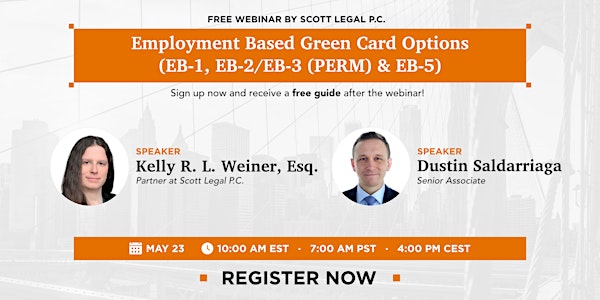
Employment Based Green Card Options (EB-1, EB-2/EB-3 (PERM) & EB-5)
This webinar will cover how to obtain a Green Card based on employment, and how to move from a Visa to a Green Card through employment.
By Scott Legal P.C.
Date and time
Thursday, May 23 · 7 - 8am PDT
Location
Online
About this event
- 1 hour
Organized by
Scott Legal, P.C. is a New York-based Immigration and Business Law Firm founded by Harvard Law School graduate and attorney Ian E. Scott.